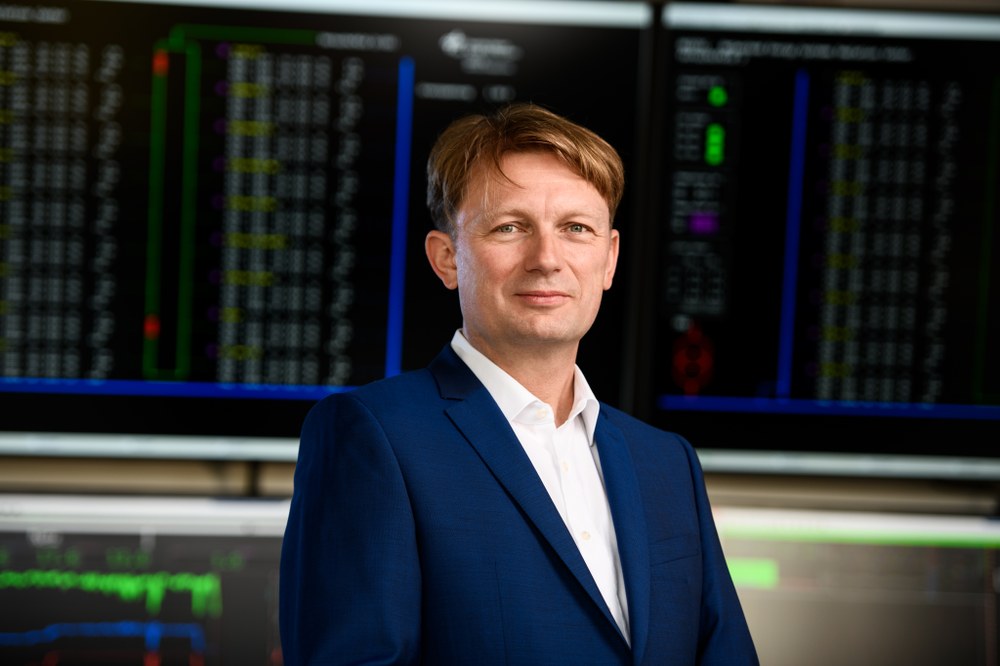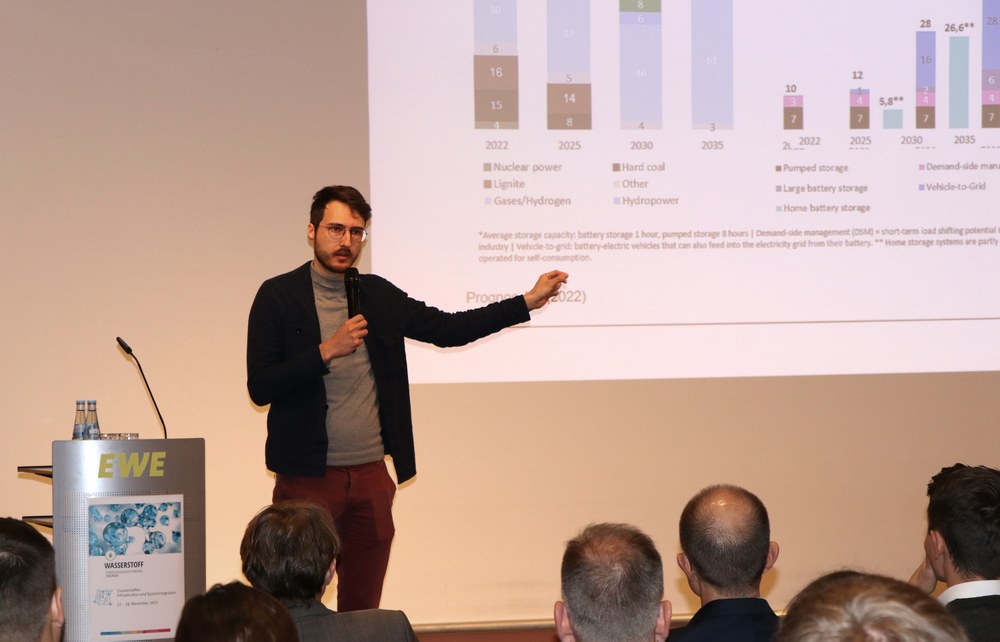Building hydrogen infrastructure: experts recommend rapid development of a storage concept

- „Infrastructure und system integration“ cluster a from hydrogen research network met on 27/28 November 2023 for the first time in Oldenburg.
- The Integration of large-scale storage capacities must be given greater focus than before in preparation of the German H2-market ramp-up.
- Institute Director Prof. Carsten Agert has been co-cluster spokesperson since 2021
- Focus: Energy, storage, system integration
"Infrastructure and system integration" cluster from hydrogen research network identifies potential bottlenecks in preparation for market ramp-up - cluster meeting on November 27/28, 2023 in Oldenburg.
In the preparations for the market ramp-up of a German hydrogen infrastructure by 2030, the integration of large-scale storage capacities must be given greater focus than before. Extensive technical and system-analytical research efforts are still required for this, summarised the "Infrastructure and System Integration" cluster of the German Hydrogen Research Network at its meeting on November 27 and 28, 2023 in Oldenburg, Lower Saxony. According to the experts, concepts for integrated planning in the development of the hydrogen infrastructure, for the conversion of the natural gas infrastructure for hydrogen and for adjustments to the regulatory framework are also increasingly needed to ensure a successful market ramp-up.
The main topic of the fourth cluster meeting, which was attended by around 70 participants, was a comprehensive bottleneck analysis of the existing plans for the H2-market ramp-up. A wide range of system aspects, from international ship-based hydrogen transport to pipeline transport in the distribution grids, were discussed in keynote speeches and subsequent analysis of how they interact with each other. A special focus was placed on the storage infrastructure: "This is where we see a potential bottleneck in infrastructure planning," said Institute Director Prof. Carsten Agert, who, together with Dr Urban Keussen (Chief Technology Officer of Oldenburg-based EWE AG), acts as spokesperson for the "Infrastructure and System Integration" cluster. "A sharp increase in storage requirements for hydrogen is forecast for the period from 2030, which could rise to up to 105 terawatt hours by 2045. By comparison, the theoretical conversion potential of all current natural gas storage facilities is 35 to 50 terawatt hours". There is therefore a need for long-term storage planning, as the construction of a cavern takes three to five years - plus planning, approval and commissioning.

Eva Mühle / Projektträger Jülich
The participants agreed that the design of the H2-infrastructure will have a major influence on the success of the hydrogen market ramp-up overall. "We will only be able to fully exploit the potential that hydrogen offers for flexibilisation and decarbonisation of the overall system if the electricity and hydrogen infrastructure work together effectively," emphasised Agert. For this reason, special attention must be paid to the system integration of electrolysers and reconversion power plants, which serve as sector-integration elements between the electricity and gas infrastructure, with a deeper overall systemic understanding.
The Hydrogen Research Network is one of nine energy research networks. It was established in 2021 by the Federal Ministry for Economic Affairs and Climate to provide research, politics, industry and business with a forum for the development of joint recommendations and statements on H2-technologies along the entire value chain. The networks are also intended to serve as important drivers of research and innovation policy with a focus on application proximity and practical transfer.
More information on the topic:
